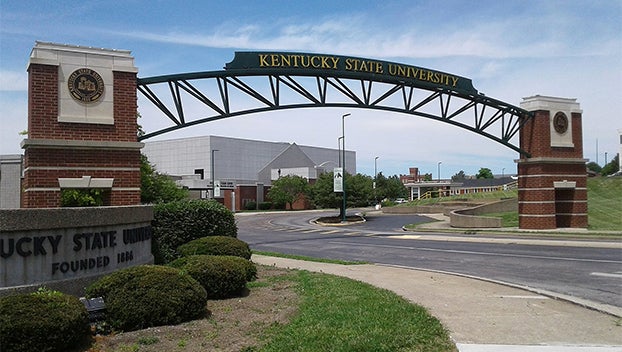Jury: Kentucky university violated Whistleblower Act in 2018 employee firing
Published 9:01 am Saturday, March 5, 2022
Editor’s note: This story contains descriptions of sexual assault and harassment.
After just under an hour and a half, a Franklin Circuit Court jury unanimously found that Kentucky State University violated the Kentucky Whistleblower Act by terminating former Student Support Services (SSS) Assistant Director Xavier Dillard. The jury awarded Dillard $161,539 in lost wages and $200,000 in emotional damages.
In a case that spanned four days, featured 11 witnesses and almost 40 pieces of evidence, lawyers representing both Dillard and KSU presented their arguments for the true cause of Dillard’s termination from the university in October 2018.
Dillard and his lawyer, Michael Augustus, told The State Journal they felt vindicated by the jury’s decision. Dillard said it was almost surreal that almost three years after being unjustly fired by KSU justice was finally being served.
“For me it’s just kinda like a dream, I’m not sure if I’m awake or not. I’m just glad that I’m able to bring justice and bring light to the situations that were going on,” he explained.
Dillard alleged he was unjustly fired from KSU for sending an email advocating for two students who submitted sexual harassment cases against university faculty and staff, as well as claiming the university was out of compliance with rules and stipulations related to federal TRIO grants. These grants were used to fund SSS and would provide materials to students from disadvantaged backgrounds, such as white boards, notebooks and computer access.
KSU said Dillard violated students’ privacy rights by sending the email to outside entities, which included then-Gov. Matt Bevin, the White House, CNN and Fox News commentator Sean Hannity. They alleged Dillard did not receive consent from the students before sending the email, which they claimed he was required to do.
Part of the Kentucky Whistleblower Act states an employer cannot require an employee to give notice of when they report law violations to authorities. Augustus, Dillard’s attorney, argued that KSU was requiring Dillard to give notice, and thus had violated the act when they terminated him.
In spring 2018, a student came to Dillard’s office at SSS and informed him that on a trip to Washington, D.C., in fall 2017, he had been sexually harassed by Justin Mathis, KSU’s director of the office of admissions. The student alleged Mathis had forced the two of them to share a room “to save money,” the student said, and had walked around the room naked and proposed the two share the same bed. Mathis had also sent him sexual messages over social media.
Dillard filed a report with KSU Title IX Coordinator Brandon Williams on Feb. 28, 2018, who placed Mathis on leave from the university the next day. Mathis submitted his resignation, effective immediately, on March 5, 2018. Because Mathis was no longer an employee, Williams said, KSU had no jurisdiction over him and thus closed the case.
In addition to filing a report, Dillard took the student to meet with then-Board of Regents member and Chair for the School of Public Administration Dr. Elgie McFayden. When called to testify, McFayden claimed he had no knowledge of the meetings.
When presented with an audio recording of the meeting, McFayden said the voice on the recording was not his. The recording was later verified by the student and KSU to be authentic and did feature McFayden speaking to both the student and Dillard.
Amos Jones, a federal education attorney in Washington, D.C., who is representing the student in a federal lawsuit against KSU, called the moment the recording was presented to McFayden “a Mark Fuhrman moment,” referencing when the former Los Angeles detective perjured himself in the 1995 O.J. Simpson murder trial.
After these actions, Dillard said he was discriminated against by KSU. He testified that he and SSS were put in an area of the Academic Services Building filled with trash, dirty, smelly, unplugged refrigerators and other refuse.
After the student transferred from KSU in the fall of 2018, Dillard decided to send the email about what happened to the student, as well as about what KSU was doing to SSS.
Past and present KSU employees testified that the only reason Dillard was fired was because of the email he sent in 2018. As a result, the jury found that he had been unjustly fired in an act of retaliation by the university.
Going forward, Dillard said he wants to find another job at a university where he can continue helping students “get to the next level.”
In spite of what happened to his client, Augustus said KSU provides important services to its students and he hopes the university will figure out how to positively move forward.
“I hope that they (KSU) get their house in order, because there’s a lot of students, and a lot of young people, who could benefit from a place like that,” he stated.
Dillard, who is the father of two girls and the guardian of his niece, said he would still encourage them to attend KSU when they start looking at college. He said his daughters grew up on KSU’s campus so it feels like home to them.
“I will definitely be encouraging them. One runs track and the other plays basketball, so I will definitely be encouraging them to participate at the great Kentucky State University,” he said.






